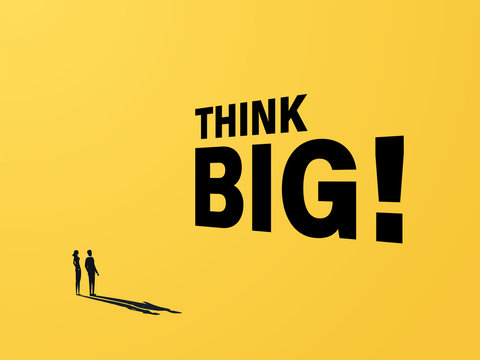Why Thinking Big Is the Safest Bet in the Age of AI and Exponential Technologies
We are entering an era where bigger ambition isn’t just possible—it’s necessary. The very nature of technology has shifted. We used to think of the internet as the most transformative force in human history. But now, AI has emerged as something far more powerful.
Interacting with today’s leading AI models feels like conversing with a mind that has read the entire internet and can reason, write, solve, and synthesize in seconds. It’s not just a tool; it’s a multiplier of intelligence, productivity, and imagination. And here’s the kicker: AI is not alone.
We are living through the simultaneous rise of ten or more foundational technologies—each as groundbreaking as the internet once was. Quantum computing, robotics, synthetic biology, energy storage, blockchain, brain-computer interfaces, space tech, and AR/VR—to name just a few—are all reaching inflection points. Each of these domains is moving fast. Faster than any one individual can fully grasp. Mastering even one of these frontiers takes a lifetime. Understanding how they will intersect? That’s something even the world’s top minds struggle to model.
This convergence means we’re entering a period of technological super-collision. The combinations, permutations, and crossovers will be unpredictable, unstoppable, and deeply transformative. The future won’t be shaped by isolated breakthroughs, but by exponential synergies.
In this landscape, the most rational bet is also the boldest: go big. The startup space is no longer just about incremental improvements or clever apps. The low-code and no-code revolutions, accelerated by AI, mean that the barriers to building have collapsed. Coding has become English. And with generative AI, it’s English at the speed of thought.
Now is not the time to play small.
It’s the time to build startups that tackle civilizational-scale challenges—climate, education, health, governance, misinformation, economic inclusion, and more. We have the tools. We have the models. What we need is the ambition.
Startups used to ask: Can we build this?
Now they must ask: Is this big enough to matter?
In a world where AI is rewriting what’s possible daily, the most practical strategy is also the most audacious one: think bigger than ever before. Because in the new era of tech, big is not just beautiful—it’s the baseline.
🚀 Examples of Startups Tackling Civilization-Scale Challenges
-
OpenAI
Challenge: Human productivity, education, knowledge access
Solution: Creating general-purpose AI systems that serve as universal assistants, capable of transforming work, learning, and creativity across the world. -
SpaceX
Challenge: Multi-planetary survival, low-Earth orbit connectivity
Solution: Making space travel and satellite-based internet infrastructure (via Starlink) affordable, expanding humanity's reach beyond Earth. -
CarbonCapture Inc.
Challenge: Climate change and carbon removal
Solution: Developing scalable direct air capture systems to pull carbon dioxide out of the atmosphere at industrial scale. -
Recursion
Challenge: Drug discovery bottlenecks
Solution: Using AI and automation to drastically speed up how we find new medicines by combining biology, imaging, and machine learning. -
Anduril Industries
Challenge: National defense and security in the age of autonomous warfare
Solution: Deploying AI-powered defense tech that includes autonomous surveillance towers, drones, and next-gen battlefield systems. -
Rora (formerly YC Bio)
Challenge: Aging and life extension
Solution: Biotech companies like those funded through Rora are targeting the biology of aging itself, aiming to extend healthy lifespan by decades. -
Zipline
Challenge: Equitable access to health and emergency services
Solution: Drones delivering blood, vaccines, and medical supplies to remote and underserved communities—starting with Africa and expanding globally. -
Inflection AI
Challenge: Human-machine relationships
Solution: Building empathetic AI companions like Pi that serve as daily assistants, coaches, and friends—redefining emotional computing. -
Tome Biosciences
Challenge: Genetic disease at the root
Solution: Developing precision gene-editing tools that can rewrite DNA inside the body to cure inherited conditions at the source. -
Worldcoin
Challenge: Global economic inclusion in an AI-disrupted future
Solution: Using biometric identification and blockchain to create a universal financial identity, potentially enabling universal basic income.
🌍 The Pattern: Bold Vision, Exponential Tools
What these companies have in common is a willingness to tackle the largest questions of our time. They’re not merely “startups”—they’re societal experiments backed by capital, data, and exponential tech. And they’re moving fast.
It’s no longer enough to just be clever or efficient. The winners of the coming decade will be those who dare to address humanity’s largest puzzles—and have the tools to actually build the solutions.
This is the golden window.
You can try to predict the future.
Or you can help build it at scale.
The safe bet today isn’t small and calculated.
It’s bold. It’s fast. It’s big.


No comments:
Post a Comment